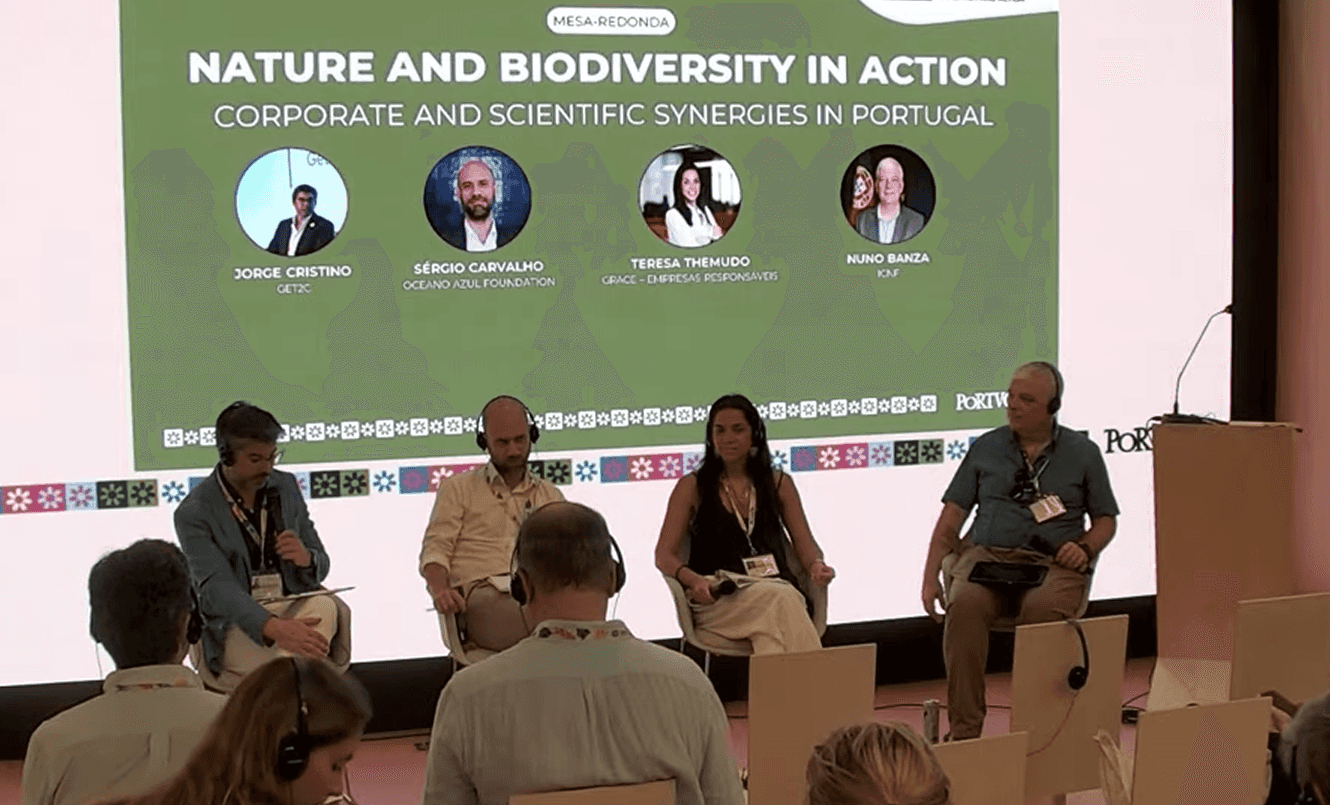At the round table promoted by GRACE - Responsible Business at COP 30, "Nature and Biodiversity in Action: Business and Scientific Synergies in Portugal", the importance of bringing different sectors together to build a truly transformative agenda for nature became clear. The conversation brought together complementary contributions which, by crossing public, business and scientific perspectives, revealed the urgency and opportunity for Portugal to accelerate its nature-positive path.
Nuno Banza (ICNF) brought a vision of terrestrial biodiversity and stressed that, despite progress, the country still lacks a strong aggregation around a common goal. He acknowledged the lack of consolidated metrics - "we still don't have our degree and a half" - and highlighted the growing interest of investment funds in areas such as wasteland, pointing out that it's not enough to think about carbon credits. In his view, it is essential to look at biodiversity credits, as many ecosystem services have functions that cannot be fully monetized, and new ways of valuing and protecting them are needed.
Teresa Themudo (GRACE - Responsible Companies) has shown that companies are increasingly exposed to the financial, social and water risks associated with the degradation of nature. European regulations - in particular the CSRD, which requires assessing risks, impacts and dependencies - are acting as a strong catalyst. But he stressed that "reporting is not acting": GRACE's job is to help companies go beyond compliance, promoting competitiveness, resilience and creating value for communities, where nature is a central part of the strategy.
Now Sérgio Carvalho (Oceano Azul Foundation) brought up the dimension of the ocean, pointing out that marine nature is a pillar of Portugal's identity and economy. He shared a historic milestone: the approval of the first Marine Protected Area of the 21st century in mainland Portugal, a real "treasure" that will begin to be protected and which demonstrates the country's growing commitment to its blue natural heritage.
Together, these speeches, moderated by Jorge Cristino (@Get2C), revealed that the response to the biodiversity crisis will only be effective if it brings together science, public policies and companies, making it possible to align economic development with ecological resilience.
The full session is available at YouTube.
